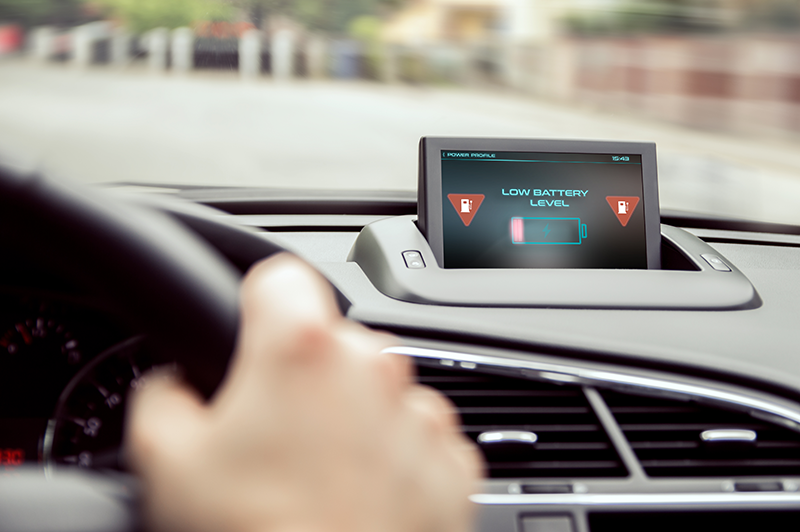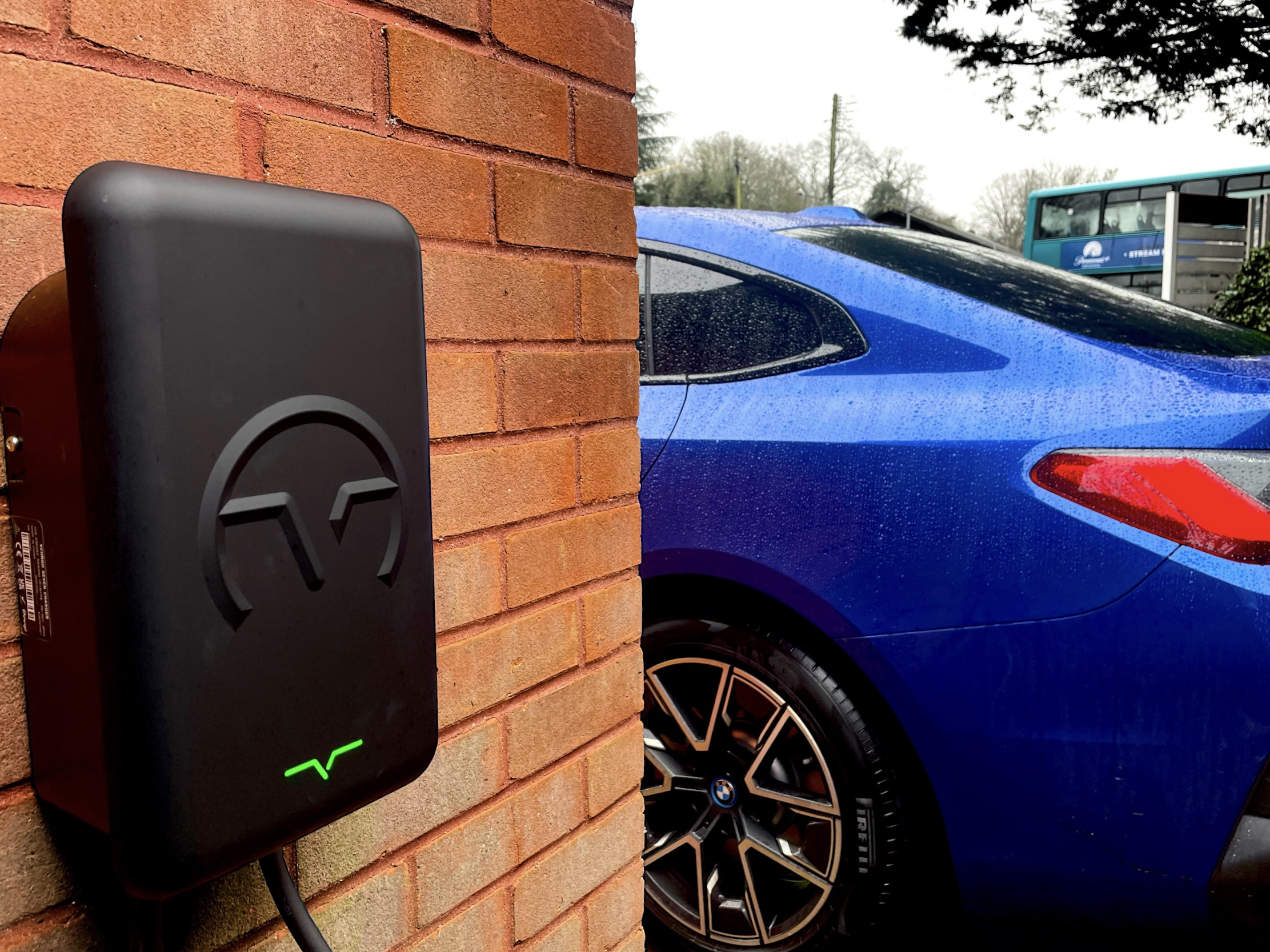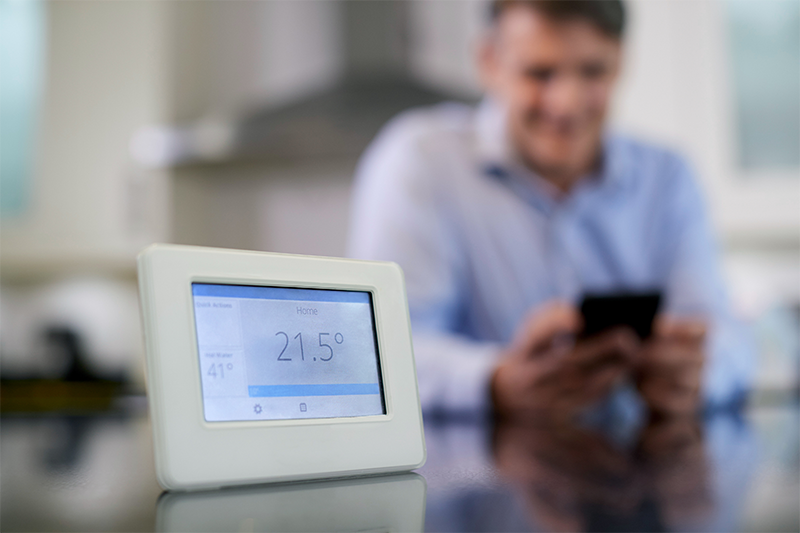
Say goodbye to EV range anxiety and hello to a long battery life
29 February 2024
How to optimise the cost of EV home charging
11 April 2024Smart Meters – what are they and how can you benefit
Sales in electric vehicles (EVs) are on the rise. One in six new cars sold in the UK in the past 2 years were battery-electric.
With Britain’s government committed to calling quits on sales of all new conventional petrol and diesel vehicles by 2040, that figure is also set to climb.
But in order to manage the growth in EVs, we need to be able to charge them with ease and efficiency, and at times when electricity costs are lower.
The solution? Smart meters.
What are smart meters?
A big step up from analogue energy meters, smart meters are next-generation, digital meters that can monitor and measure energy use in real-time.
Customers with electric cars can use this data to make well-informed decisions on how to control consumption, save money and continue cutting carbon.
For starters, because a smart meter shows you directly how much energy you’re using on a daily, weekly and monthly basis, you can set budget goals on the meter display itself to help you keep big bills at bay. The real-time data allows automatic readings to be sent straight to your supplier cutting out the hassle of manual readings and “estimated” bills. Electricity supply companies can then also use this information to enhance their planning and customer offers.
All UK households are entitled to have their old energy meters upgraded to smart meters at no extra cost as part of a national government programme. If your current energy supplier hasn’t alerted you to this fact, you can contact them yourself to request an installation.
Benefits of smart meters
Overall the benefits of smart meters are many, but let’s dive into exactly what that means for the consumer and EV owner.
Cost
The ability to save big is one of the major benefits of smart meters. According to The Electric Vehicle Smart Charging Action Plan, published by the government and Ofgem in January 2023, smart charging has the potential to save an ordinary motorist up to £200 and a high mileage driver up to £1,000 annually, depending on tariff, mileage, and charging habits. Specifically, this is achieved by delaying charging until nightly off-peak times when energy costs are at their lowest.
The government’s proposal will also enable customers to use the electricity that their electric car stores to power their homes or businesses and even sell the stored electricity back to the grid at a profit.
Alongside home car charging, the government intends to have thousands of intelligent and automated smart charge points available at appropriate public spaces.
That said, the most recent figures highlight the public smart meter roll-out plan as way behind target; only 57 per cent of all meters in Great Britain are currently smart, and completion deadlines continue to shift.
Convenience
Convenience is another big win for smart car charging. EV owners can manage charging schedules remotely and ensure that their car is charged at a time most convenient to them, or when cheaper and cleaner energy sources are available.
The intelligent features will guarantee that the car is charged by the time they come to use it again.
Control
With smart chargers also providing real-time data on charging levels, energy consumption and more, owners can receive notifications or alerts every time there’s a status change.
That means you can monitor and control the charging progress.
You can adjust the amount and timing of electricity your EV receives to help you improve efficiency, achieve the best EV rate and generally reduce costs.
Cutting carbon
If you drive an electric car you’re already cutting carbon as these vehicles don’t produce emissions when they’re driven.
Having a smart charger can add to this environmentally friendly goodness.
Due to the real-time data they collect, smart chargers enable EVs to charge when energy is available from renewable sources, such as solar, wind and nuclear sources.
This minimises your use of fossil fuels, ensuring that the electricity you’re using is clean as well as cheap. Win-win!
Bringing balance to the grid
EV owners often plug in to power up as soon as they arrive home from work. But this tends to be peak time and can overload the grid.
Smart charging systems can automatically modify charging times to correspond with time-of-use (TOU) rates. This means that drivers can still plug in their vehicles at the end of the day, but the chargepoint will take care of the charging and schedule it for a time when there is less demand for power. Not only does this benefit your wallet, but it also helps balance grid demand.
Financial support
Here’s some more good news!
If you own your apartment, live in rental accommodation, or live in remote areas of rural Scotland, you may be eligible for a grant from the Office for Zero Emission Vehicles (OZEV) EV chargepoint grant to help you offset the cost of installing an EV smart charger at home. This grant takes the place of the Electric Vehicle Homecharge Scheme (EVHS).
To claim the grant, you can’t have been awarded this or the older EVHS grant in the past. You must also own, lease, or drive a battery electric vehicle (BEV) or plug-in hybrid (PHEV). Finally, each applicant is limited to one chargepoint per vehicle and household.
*****
So, these are the primary benefits of using smart EV chargers. The facts speak for themselves—switching to a smart charger, if you haven’t already, will be kind to your pocket, your peace of mind and the environment.
If you’re ready to take a step towards smart charging at home we can help. Check out our smart EV home chargers and charging installer support.
About Powerverse
We’re industry experts in home energy management. Our easy-to-use app is built for your future electric home. It will effortlessly sync your solar, battery, heat pump, EV charger and more, helping you cut costs and your carbon footprint on your way to becoming energy-independent. Curious to know more? Talk to one of our experts.

